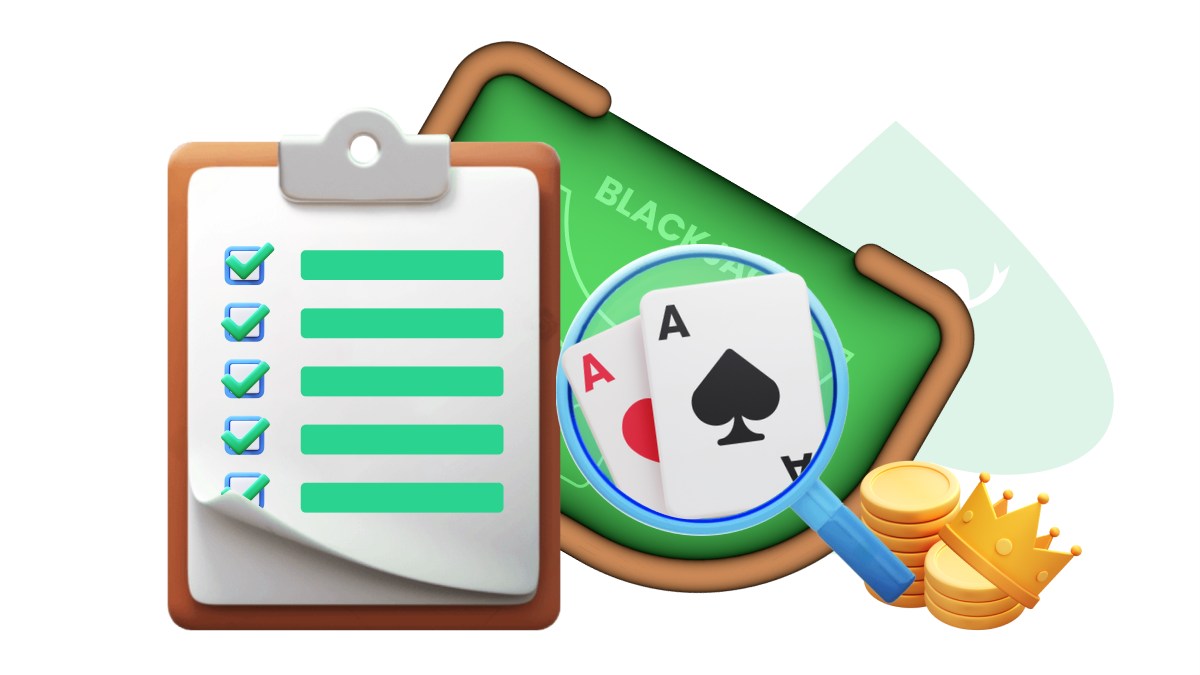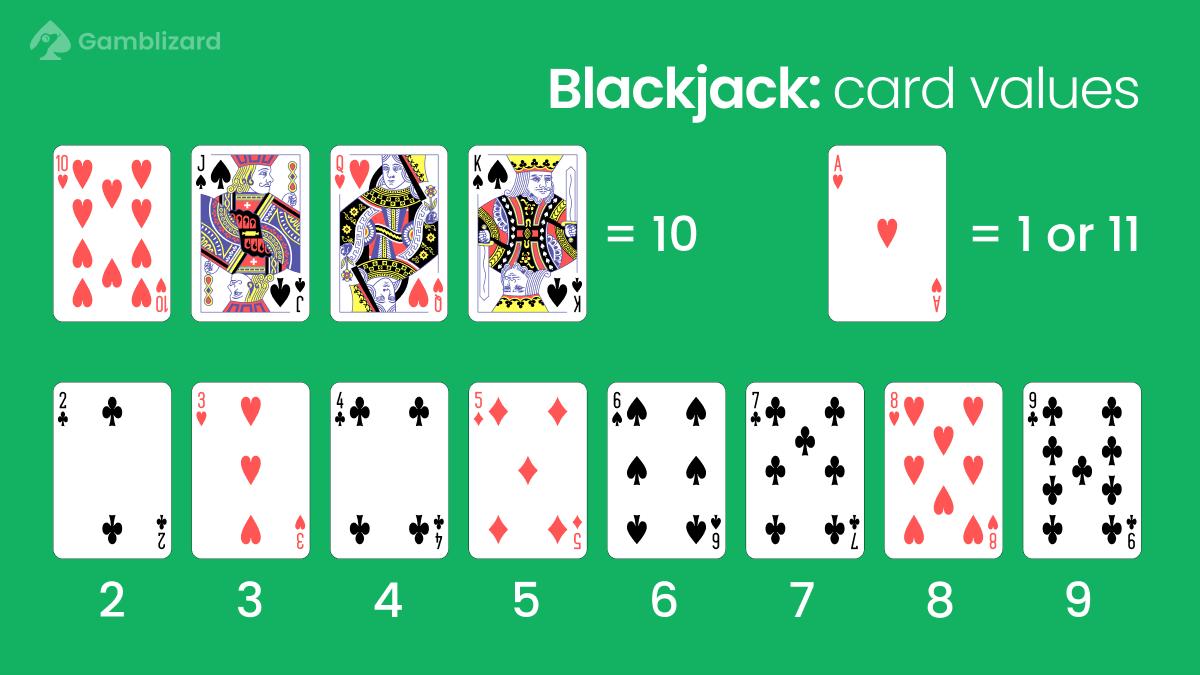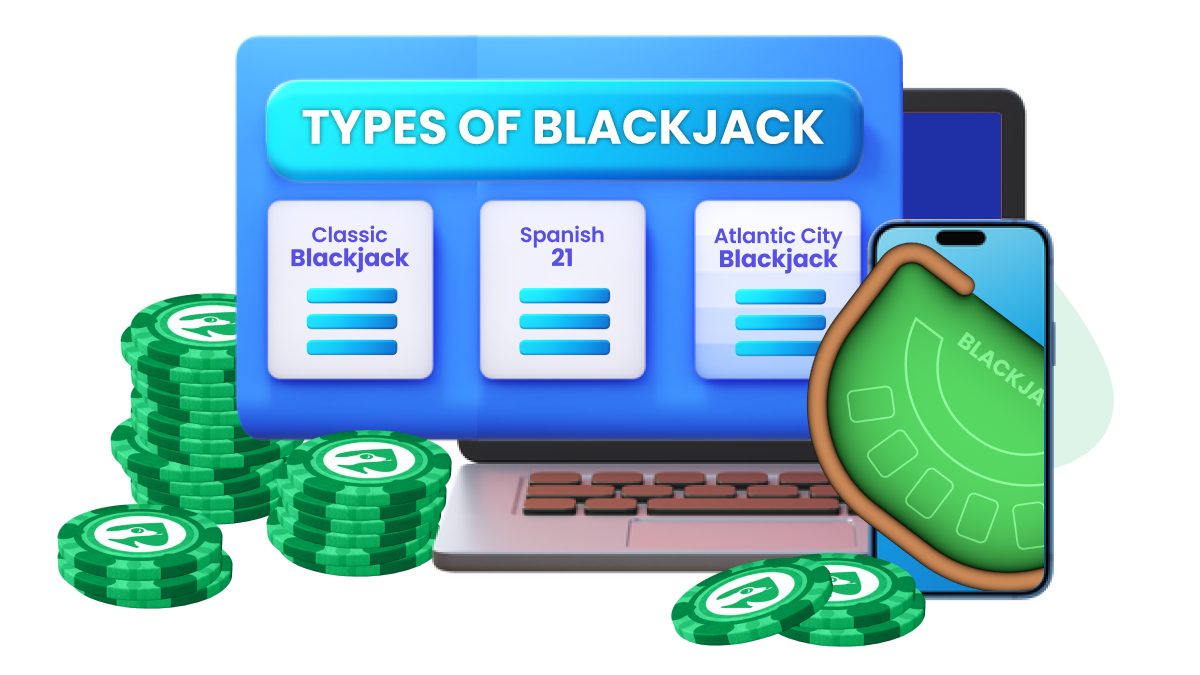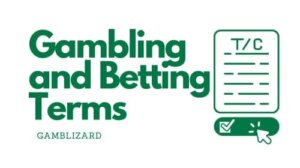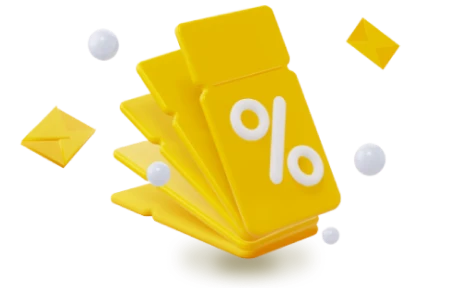Blackjack Rules and Strategies
Almost everyone has heard of blackjack, and most are familiar with the number “21,” but fewer people know all the detailed rules of blackjack. It’s no surprise, as there are many rules, which can also vary across different versions of the game!
This guide will help get you ready for the tables. Unlike many other casino games, your decisions in blackjack can have a big impact on your expected outcome—knowing the rules of blackjack will help you play more effectively.
What is Blackjack?
Blackjack is one of the most well-known and popular card games, and along with roulette and baccarat, it’s a staple at nearly every casino. In blackjack, you’re playing against the house. But unlike other casino games, you can’t just sit at a blackjack table and relax. To play blackjack optimally, you need to be highly focused on your strategy.
Every game of blackjack begins with the dealer giving you two cards. Each card has a specific value, and the goal is to get as close to 21 as possible without going over. A hand totaling 21 with your first two cards is a ‘blackjack,’ which pays 3:2—except when the dealer also has blackjack, in which case it’s a push.
The game is a direct competition between you and the dealer. The dealer does have some advantages in the game, known as the “house edge.” However, you can reduce this edge by making smart decisions. These decisions include whether to take more cards, split your hand, or stay with what you have. We’ll go into more detail about these later.
Cards in Blackjack
When you play online blackjack, or at a live table, the cards used are the same. The deck includes numbered cards from 2 to 10, face cards (J, Q, K), and the ace. Here’s how the cards are valued:
- 2-10: These cards are worth the number shown on the card. So, a 2 is worth 2 points, and a 7 is worth 7 points.
- J, Q, K: These three face cards are each worth 10 points. They are often called “10-point cards.”
- A (Ace): The ace is special because it can count as either 1 or 11, depending on what benefits your hand the most.
General Blackjack Rules
We’ve already established that the main goal in blackjack is to get as close to 21 as possible without going over. You need to keep in mind the value of the cards, as mentioned above. With that in mind, we can go deeper into the rules of the game. As we go through the rules, we’ll be using some terms and concepts that will be explained in more detail in the next section (Blackjack Terms Explained).
Learn How to Play Blackjack
When you sit down at a blackjack table, the game begins with everyone placing their bets. You can play for as little as $1 at most online casinos, while physical casinos often have a higher minimum bet. There are also VIP blackjack tables that require a larger bet. However, the online selection is vast, so it’s easy to find a betting level that suits your preferences.
Once the bets are placed, all players receive two cards from the dealer. These are dealt face-up, so the dealer can see them as well. The dealer also draws two cards, but only one of theirs is face-up. You’ll have two cards in front of you, with their values visible, while only one of the dealer’s cards is known.
Now, it’s time to make your first decision. Are you satisfied with your cards, or do you want to draw another card? Your decision is based on both the dealer’s card and your own cards. For example, basic strategy recommends standing on a hard 17, but this is a player decision rather than a fixed game rule. However, if you have a combination like 9-2 (with a value of 11), it’s best to take another card.
In principle, you can keep drawing cards until you’re happy with the value of your hand. But if your hand value exceeds 21 at any point, you lose the game, no matter what the dealer has. So, it’s important to be cautious and find a balance—you want to get close to 21, but taking too many risks can lead to a loss.
Once you’ve drawn your last card and decided to stand, the dealer reveals their second card and starts drawing more cards until their hand reaches a minimum of 17. If the dealer’s hand totals 16, they must draw another card, even if you stopped at 17. This may sound like an advantage for the player—and it often is—but remember that if you go over 21 before the dealer plays, you’ve already lost.
The complex rules of blackjack have led to the development of many strategies and theories on how to beat the dealer. Unlike other casino games, a lot of thought has been put into how to win at blackjack. We’ll explore some of that knowledge in the next section.
Strategies
You may have heard of complex strategies like card counting or gradually increasing your bet—these are not recommended. While blackjack does involve an element of luck, you can easily improve your chances by following some basic principles. Alternatively, you can also use a blackjack chart, which helps you make the best decisions based on the situation.
How to Use a Blackjack Chart
A blackjack chart has a horizontal and vertical axis, showing the possible values of your cards and the dealer’s card. By finding the point where your cards and the dealer’s card meet, you can see the chart’s recommendation. For example, if you have a total value of 12 and the dealer shows a 6, the chart will likely advise you to stand.
Should You Split Your Hand?
This depends entirely on the combination of cards you have and the dealer’s visible card. It’s never a good idea to split two 10s. Some players are tempted, but it’s unnecessary. When you have a hand value of 20, your chances of winning are high, so there’s no reason to take an unnecessary risk. However, there are situations where it makes sense to split: if the dealer’s hand shows a value of 2-6, they are at a higher risk of going bust, and in that case, you may want to split your smaller hands.
Blackjack Terms Explained
Many card games are simple to understand, but the rules of blackjack can be more complex. Below is a list of the most common terms in blackjack.
Stand
To “stand” means the player chooses not to receive any more cards. It’s always a matter of evaluating how strong your hand is compared to the dealer’s. Deciding whether to stand or take another card is one of the most important strategic choices in blackjack. Many factors can influence this decision, which is why studying the game helps you better understand when it’s worth taking the risk.
Split
In blackjack, you can also choose to “split” your hand—dividing it into two separate hands. This is only possible if you have two of the same card, like two 8s or two 10s. When you split your hand, your bet is doubled because you’re now playing two hands against the dealer. Whether or not to split depends not only on the value of your cards but also on how strong or weak the dealer’s hand appears to be.
Insurance
If the dealer has an ace showing, you can choose to buy insurance or an “Insurance bet.” This protects you in case the dealer gets a blackjack. The price is equal to half your original bet, and if the dealer has blackjack, the payout is 2:1, meaning you get your full bet back.
Double Down
By choosing “Double Down,” you double your original bet, and then you receive just one more card. This is a riskier option since it increases the variance, but it can also lead to a bigger payout if you win the hand. Doubling down is not available in all blackjack games, and the specific conditions for it may vary.
Surrender
Surrender is when the player gives up their hand and gets half of their original bet back. You withdraw from the hand, knowing that your chances of winning are slim. The half bet returned is a form of compensation for surrendering. There are two types of surrender:
- Early Surrender: You can withdraw after receiving your cards but before the dealer checks for blackjack.
- Late Surrender: You can surrender after the dealer has checked for blackjack.
Types of Blackjack
When you visit an online casino lobby, you’ll quickly notice that there are many different versions of blackjack. What these games all have in common is that the outcome can be influenced by making good decisions. It’s important to remember that blackjack is not considered a skill game like poker. You’re playing against the house, and in such games, you won’t win consistently in the long run.
However, there are plenty of formats available, and they vary in everything from betting limits to speed, and even the rules can be quite different. This can be a bit confusing, so we’ve put together a few of the most well-known variations:
